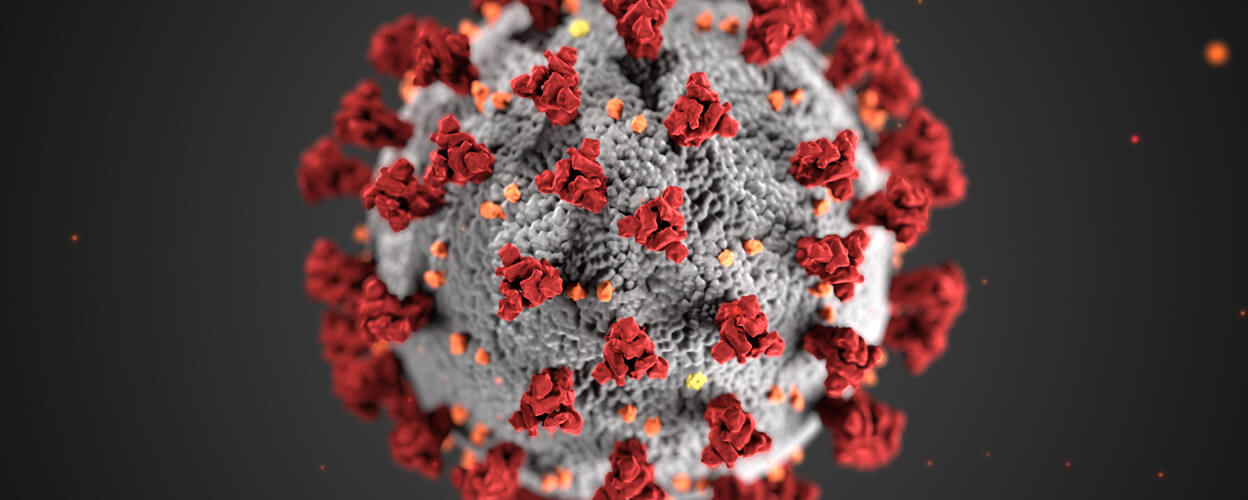

COVID-19 Information for Families
Get the information you need to help protect yourself and your aging loved ones.
Prevention
The best way to prevent any illness is to avoid exposure. It is important to protect yourself and your family from the threat of the coronavirus. COVID-19 is transmitted through close contact with someone who is infected. Respiratory droplets from coughs and sneezes can enter your mouth or nose, or potentially be inhaled when you are in contact with an infected individual and not appropriately protected with personal protective equipment such as face masks. Becoming vaccinated is the most effective way to prevent COVID-19.
Here are steps you can take to help prevent illness:
- Get vaccinated.
- Wear a face mask in public.
- Stay away from crowds as much as possible.
- Stock up on your medications and supplies.
- Avoid touching your eyes, nose and mouth.
- Cover your cough or sneeze with a tissue, then throw the tissue in the trash.
- Wash your hands often or use alcohol-based hand sanitizer that contains 70% to 95% alcohol when soap and water are not available.
- Clean frequently touched objects and surfaces.
- If you feel sick, stay home away from others and contact your health care provider.
- Wear a face mask if you are not vaccinated and around others. If you are vaccinated and with others but are unsure of their vaccination status, consider wearing a face mask.
Additional Reading: Protecting Seniors From Coronavirus


Protecting Seniors From COVID-19
Ways to Help Prevent and Prepare for COVID-19
- Stay away from others as much as possible.
- Stock up on your medications and supplies. Your health care provider may be able to extend prescriptions, or you can use mail-order prescription services.
- Avoid touching your eyes, nose and mouth.
- Cover your cough or sneeze with a tissue, then throw the tissue in the trash.
- Wash your hands often with soap and water for at least 20 seconds, especially after going to the bathroom; before eating; and after blowing your nose, coughing or sneezing.
- If soap and water are not readily available, use an alcohol-based hand sanitizer with at least 70% alcohol.
- Clean and disinfect frequently touched objects and surfaces using a regular household cleaning spray or wipe.
- If you feel sick, contact your health care provider and stay away from others until your provider can determine your health status.
- Wear a face mask when you are around others, especially if you are not vaccinated.
Symptoms of Coronavirus
The CDC believes that the symptoms of COVID-19 may appear in as few as two days or as long as 14 days after a direct exposure. Reported illnesses from confirmed cases ranged from mild symptoms, such as fever and cough, to more severe symptoms, including weakness, difficulty breathing, pneumonia, and severe acute respiratory syndrome. Symptoms can be similar to the common cold and influenza; contact your primary health care provider for support and recommendations if you have any respiratory illness symptoms.


Tips to Help Stop the Spread of COVID-19 if You Are Sick
- Call before visiting your health care provider.
- Avoid crowds, public areas and public transportation as much as possible.
- Isolate yourself from other people and animals in your home when you are not feeling well.
- Wear a face mask if you are around others.
- Cover your cough or sneeze with a tissue, then throw the tissue in the trash.
- Do not share personal household items. Dishes, eating utensils, drinking glasses, towels and bedding should not be shared with others if you are ill. Thoroughly wash these items after use.
- Clean highly touched areas frequently. These areas include counters, tabletops, doorknobs, bathroom fixtures, toilets, phones, keyboards, tablets and bedside tables.
- Monitor your symptoms and follow the instructions provided by your health care provider and/or local health department.
Caring for Someone Who Is Ill
- Limit visitors. Only allow those who are vaccinated with an essential need to be in the home around your loved one.
- Keep others in the home separated if they tested positive or were exposed. If possible, find a separate bedroom and bathroom for those who are ill or were exposed to COVID-19. Limit exposure by keeping others living in the home separated.
- Do not share household items with someone who was potentially exposed or who has tested positive. Consider using disposable items like dishes, drinking glasses, cups and eating utensils. Avoid sharing towels and bedding. After the patient uses these items, wash them thoroughly.
- Disinfect highly touched surfaces frequently. Use a household cleaning spray every day to clean counters, tabletops, doorknobs, bathroom fixtures, toilets, phones, keyboards, tablets and bedside tables.
- Wash laundry thoroughly. Immediately wash clothes, bedding and towels that have blood, stool or body fluids on them. Wear disposable gloves and keep soiled items away from your body.








